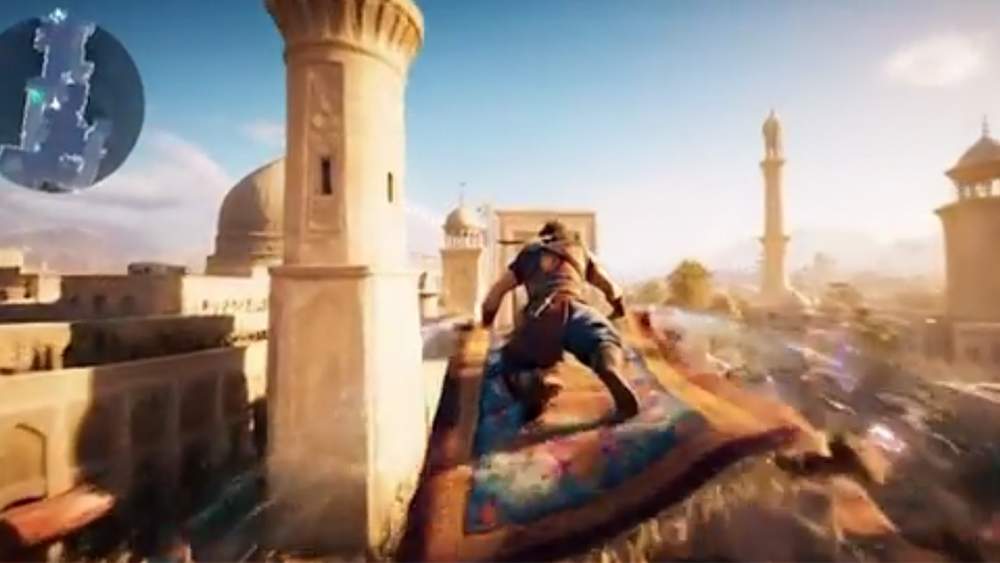## Can AI Be Creative? The Battle Lines Are Drawn in the Generative Gaming War
Imagine a game world that adapts and evolves based on your every move, where levels are procedurally generated to keep you on your toes, and characters whisper secrets only you can hear. This isn’t science fiction, it’s the tantalizing promise of generative gaming, a technology that’s pitting developers, gamers, and ethicists against each other in a fierce debate: is it the next evolution of gaming, or a gimmick destined to fizzle out?

Veo 3 and Beyond: The Evolving Capabilities of AI Video Generation

The rapid evolution of AI video generation, exemplified by Google’s Veo 3, is sparking fervent debate within the gaming industry. Veo 3’s ability to produce videos with remarkable fidelity, encompassing intricate physics, dynamic lighting, and detailed rendering, has ignited imaginations about the potential for AI to revolutionize game development. Gamers on Reddit, prompted by a user who shared their positive experience with Veo 3, are speculating about the possibility of a future where AI generates playable games. They envision a scenario where players could prompt a game and tweak its mechanics in real time, blurring the lines between creator and player.
While the leap from generating short video clips to crafting hours of complex, controllable gameplay presents significant technical challenges, the potential is undeniable. Microsoft’s Muse, an AI-powered game ideation tool, and Capcom’s utilization of Vertex AI and Gemini for game development brainstorming, demonstrate the growing integration of AI in the creative process. Google’s Genie 2, a large-scale foundational world model, further pushes the boundaries by attempting to generate entire game worlds. However, consistency remains a hurdle for these models, highlighting the need for continued research and development.
The Challenges of Creating Truly “Intelligent” Games
The notion of “intelligent” games, where AI takes a central role in gameplay generation, raises several critical challenges.
The Limitations of Current AI: Can it Truly Understand “Fun”?
A fundamental question remains: can AI truly grasp the concept of “fun”? While AI excels at pattern recognition and generating compelling visual experiences, replicating the nuanced human experience of enjoyment in gaming presents a formidable challenge. AI lacks the emotional intelligence and subjective understanding of what constitutes a pleasurable and engaging gameplay experience.
Resource Intensive: The Energy Demands of AI-Powered Worlds
Training and running sophisticated AI models require immense computational resources, translating to significant energy consumption. The creation of vast, dynamically generated game worlds powered by AI could have substantial environmental implications, raising concerns about sustainability in the gaming industry.
Ethical Considerations: Bias, Agency, and the Future of Player Experience
The ethical implications of AI in gaming are multifaceted. AI models are susceptible to inheriting and amplifying biases present in the training data, potentially leading to discriminatory or unfair gameplay experiences. Questions of agency arise when AI characters make decisions that influence the player’s journey. Ensuring player autonomy and control within AI-driven game worlds is crucial for maintaining a balanced and ethical gaming experience.
Reimagining the Gaming Landscape: A New Paradigm?
Despite the challenges, the potential of generative gaming to reshape the gaming landscape is undeniable.
Ephemeral Worlds: AI-Generated Experiences That Embrace Fluidity
One intriguing possibility is the emergence of “ephemeral worlds” – dynamically generated game environments that exist in a constant state of flux. AI could create ever-changing landscapes, quests, and narratives, offering players a truly unique and unpredictable gaming experience. This paradigm shift would challenge traditional notions of game structure and player agency, requiring a new approach to game design and storytelling.
The Rise of the AI NPC: Building Companionship and Unscripted Interactions
Generative AI holds the promise of creating richly interactive and believable non-player characters (NPCs). Imagine NPCs who can engage in natural, unscripted conversations, learn from player interactions, and develop unique personalities. This evolution could lead to deeper emotional connections between players and AI companions, blurring the lines between fiction and reality.
A Collaborative Future: Players and AI Working Together to Craft Games
The future of gaming could involve a collaborative relationship between players and AI. Imagine players contributing to the creation of game worlds, generating quests, and shaping the narrative alongside AI systems. This collaborative approach could empower players to become active participants in the game development process, fostering a sense of ownership and community.
Conclusion
The debate surrounding generative gaming is heating up, with passionate voices on both sides. Creative Bloq’s article delves into this exciting frontier, exploring the potential of AI to revolutionize game development and player experience.
On one hand, generative tools promise unprecedented levels of creative freedom, empowering developers to craft vast, unique worlds and dynamic gameplay experiences. They can generate assets, storylines, and even entire game levels, accelerating development and pushing the boundaries of what’s possible. On the other hand, concerns arise about the impact on human creativity, the potential for AI-generated content to feel derivative, and the ethical implications of relinquishing control to algorithms. The article highlights these concerns, urging us to consider the broader societal impact of such a transformative technology.
Ultimately, generative gaming presents a fascinating crossroads for the industry. Will it usher in a golden age of unprecedented creativity, or will it lead to homogenized, algorithmically-driven experiences? Only time will tell. But one thing is certain: the lines between human and artificial creativity are blurring, and the future of gaming is poised for a dramatic, AI-powered evolution. Are you ready to play?